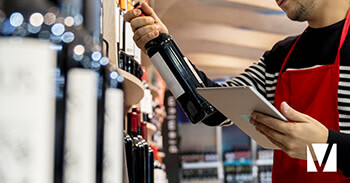UPDATE: On March 22, 2020 the ban termination date referenced below was extended to April 13, 2020.

Most of the liquor licensed community in Michigan is striving for options that will facilitate the full range of services possible for the public, in light of Governor Whitmer’s Executive Order 2020-9, which essentially banned the public from most venues of public accommodation, such as our state’s restaurants, hotels, theaters and golf courses, as well as the Michigan breweries, wineries and the associated tap and tasting rooms.
Under the present ban, which is in effect through April 13, most food establishments, including bars, taverns, brewpubs, microbreweries, breweries, distilleries, golf courses, bowling alleys, movie theaters and other businesses that hold an on- premises license – including a Class C, Tavern B or Club license, or a Brewpub license – are prohibited from permitting public access for onsite consumption. At the present time, many owners and operators are questioning the scope of operations, if any that are permitted during this ban. The Hospitality and Alcohol Beverage Control Practice Team at Varnum is analyzing the options.
Pick-up Service
First, there are opportunities for certain liquor license holders to make alcohol available for pick-up service, in the same manner as orders of food or groceries are presently available. Businesses which hold licenses for the sale of packaged beer and wine (SDM) and/or packaged spirits (SDD) are permitted to continue off-premise sales from the retail stores. In addition, grocery stores, liquor stores and other retailers may continue curbside service of alcohol, if they presently possess such curbside service authorization from the state of Michigan.
For restaurants, bars and taverns that presently possess a SDM license in combination with a Class C license, the establishments are permitted to continue to offer pick-up services, and may permit up to five members of the public to be given access at any time to the premises solely for pick-up of packaged beer and/or wine. Unfortunately, if the restaurant, bar or hotel does not possess an SDM as part of their license, no alcohol may be provided to go as part of a food order.
Michigan manufacturers potentially possess the same alcohol pick-up option: select Michigan suppliers (microbrewers, brewers, small winemakers and small distillers) that possess an on-premise tasting room permit for sales of alcohol to go, as well as off-premise tasting room licensees with permits for sales of alcohol to go, may additionally continue to offer pickup services. Varnum Hospitality and Alcohol Beverage Control Practice Team members are prepared to review the licenses and permits of a license holder to determine their eligibility for this service.
Home Delivery
Second, in addition to onsite pick-up services, options exist for home deliveries of alcohol together with food orders. Those licensees who wish to continue delivery of alcoholic products may do so, provided that the following conditions are met:
- The restaurant, bar, or tavern, must possess an SDM license. Those Class C or B hotel licensees that do not possess an SDM license are not eligible for alcohol delivery services. Those that wish to take advantage of this option must comply with three criteria:
- The beer and/or wine must be delivered by the licensee’s own employees, as third party food delivery services are not permitted to transport alcohol.
- The employee who delivers the beer or wine must confirm that the individual accepting delivery is at least 21 years of age. We are recommending that the information is documented with photographs of the ID and that all records are retained for a minimum of two years.
- The employee making the delivery must have successfully completed a state recognized alcohol server training program.
- SDD licensed operators may also provide home delivery services if the same criteria is met.
- Brewpubs and microbrewers may also deliver beer products under the same terms and conditions as set forth above. Beer growlers may continue to be filled as part of off-premises sale and consumption. Unfortunately, wineries operating a taproom, including meaderies, are not extended the home delivery option.
Options for Golf Courses
As the weather starts to break and all of the state’s golfers start seeking tee times, the state’s guidelines are applicable to golf courses with on-premises lounges and restaurants, as golf courses are restricted in the same manner as other places of public accommodations: indoor facilities like clubhouses or restaurants operated by the golf course must close for on-premises consumption but may continue to offer food and beverage through walk-up services and other means expressly permitted around the state. As a result, no banquet or other large gatherings may be permitted, as groups no larger than five are permissible, and only for purposes of the pickup of food and drink orders.
The members of Varnum’s Hospitality and Alcohol Beverage Control Practice Team are monitoring all new developments and are in daily contact with the Michigan Liquor Control Commission. Please continue to refer to the Varnum website for updates and know that Varnum is truly in your corner. Please also feel free to contact Christopher Baker or any other member of the team for further clarification or questions.
